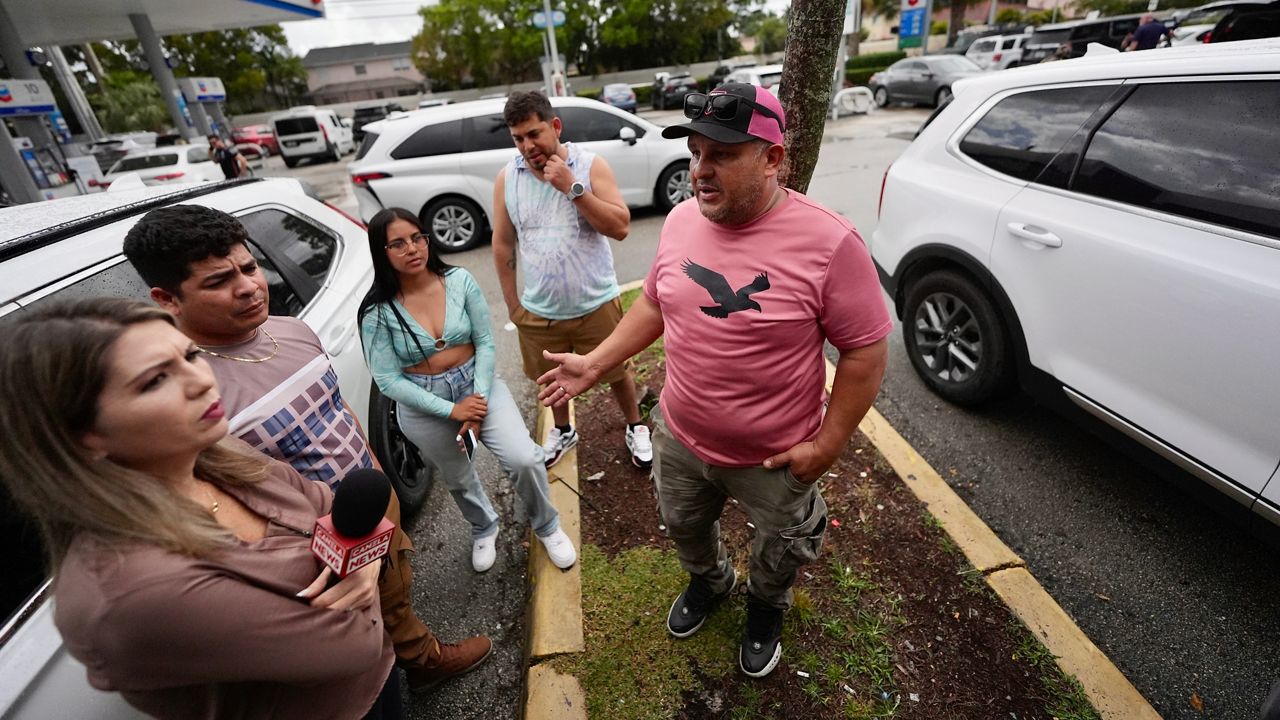TAMPA, Fla. – While local gun safety advocates say that the legislative proposal on gun reforms announced on Sunday is encouraging, they also maintain that there is much more work to be done to make the country safer from gun violence.
“This is a great start, but it’s not where we want to end,” says Megan Brockmeier, a member of Women’s Advocacy Movement of Pinellas.
Brockmeier says that ideally Congress would be looking at banning military-style assault weapons as well as universal background checks for all gun owners, but that isn’t part of this package agreed upon by the group.
The framework released over the weekend does include what is being called an “enhanced” review process for gun buyers under 21. Under a background check review, the National Instant Criminal Background Check System would also have to contact state and local law enforcement to search for any disqualifying mental health or juvenile records.
Rallies for gun safety were held in St. Petersburg, Tampa and around the country on Saturday. Last month’s school shooting in Uvalde, Texas – coming just a week after a racist mass shooting in Buffalo – has galvanized the gun reform movement in the country not seen since the school shooting at Sandy Hook Elementary in Newtown, Connecticut nearly a decade ago. That incident led a majority of U.S. Senators to vote in support of universal background checks a few months later, but the measure did not get the 60 votes required to break a filibuster.
The question now is whether at least ten Republican U.S. Senators will join the 50 Democrats in the Senate to get a filibuster proof bill in the hands of President Joe Biden to sign on gun reforms.
All eyes in Florida will on its U.S. Senators, Republican Rick Scott and Marco Rubio. The two have previously introduced one of the proposals in the new package. That’s a bill that would dedicate U.S. Dept. of Justice funds to incentivize states to adopt a “red-flag” law that was part of the gun reforms passed by the Florida Legislature in the wake of the Parkland shooting massacre in 2018.
And that’s a specific measure that some Republicans in the Florida Legislature have recently told Spectrum Bay News 9 that they’re not fond of.
Dan Tucker is a former Pinellas County Republican State Committeeman, as well as a longtime NRA and Gun Owners of America member.
At the heart of his opposition to the bipartisan framework is that “red-flag” measure. In Florida, that measure allows law enforcement to go before a judge to have firearms removed from someone who they have deemed to be a danger to themselves or to the community.
Tucker says those laws are unconstitutional and Un-American.
“They’re convicting you before you have any trial or any before you see a jury or a judge or anybody,” he says. “And all it is someone saying, ‘I’m afraid of him. You need to take away all his guns.'”
Gun reform advocates are adamant that gun restrictions need to be passed federally, and not by individual states. But Tucker says he's just as vehemently opposed to the federal government having any say in such laws.
Cheyenne Cheile, another member of Women’s Advocacy Movement of Pinellas, says it would be devastating if the bipartisan proposal doesn’t get across the finish line.
“I question how many more American lives have to be lost before we take this seriously to push something towards legislation,” she says, noting how measures like universal background checks are strongly supported by most Americans.
“We feel that this is just step one,” adds Monique Chamberlain, another member of Women’s Advocacy Movement of Pinellas. “So for this not to pass – how many more people are going to have to die for people to open their eyes?”
Those involved with the U.S. Senate proposal say that they're trying to get it passed before the 4th of July congressional break.









